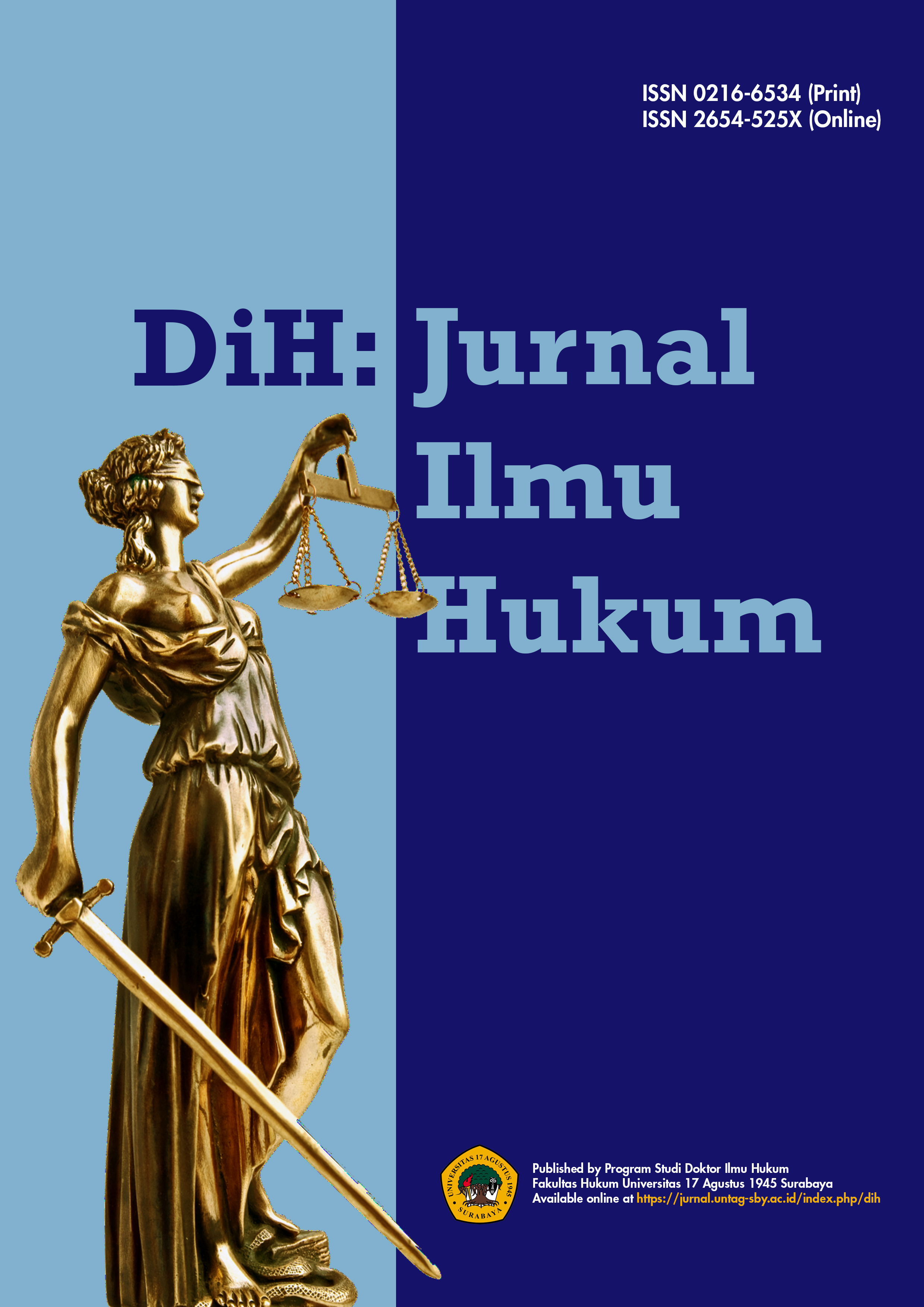Towards Economic Optimization: Evaluating The Impact of Legal Changes
DOI:
https://doi.org/10.30996/dih.v20i2.10787Keywords:
Restorative justice, Tax, Efficiency, EconomyAbstract
Restorative justice symbolizes a paradigm shift in enforcing criminal laws, right from focusing on penalizing the offenders to attending to mending the damages caused by crime while promoting reconciliation and restoration of relations within the society, has been found as well in the context of taxation to address violations of tax regulations. Tax law enforcement with a Restorative justice approach is considered to provide a more comprehensive and sustainable solution in dealing with violations. Dispute resolution is focused on reconciling the parties, in this case between the state which is positioned as a victim and the party who committed the violation, this is done to create a better compliance climate and reduce protracted problems. This journal article is prepared in order to analyse the impact of the implementation of Restorative justice regulated in the Law Harmonisation of Taxation Regulations. By using a doctrinal legal research method based on theory and application to regulations, it is hoped that the results of theoretical analysis based on the principle of restorative justice and the economic analysis of law approach can provide further insight into how Restorative justice applied as a law enforcement approach, especially in the field of taxation, can benefit the state as an effort to achieve harmonisation of tax regulations and their efficiency for sustainable economic.
Downloads
Downloads
Published
Issue
Section
License
Authors who publish with DiH: Jurnal Ilmu Hukum agree to the following terms:
- Authors transfer the copyright and grant the journal right of first publication with the work simultaneously licensed under a CC BY-SA 4.0 that allows others to share the work with an acknowledgement of the work's authorship and initial publication in this journal.
- Authors are able to enter into separate, additional contractual arrangements for the non-exclusive distribution of the journal's published version of the work (e.g., post it to an institutional repository or publish it in a book), with an acknowledgement of its initial publication in this journal.
- Authors are permitted and encouraged to post their work online (e.g., in institutional repositories or on their website) prior to and during the submission process, as it can lead to productive exchanges, as well as earlier and greater citation of published work (See The Effect of Open Access)










